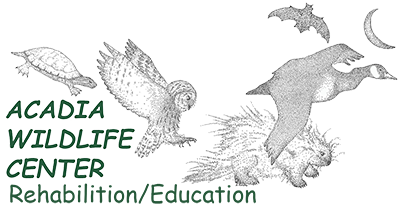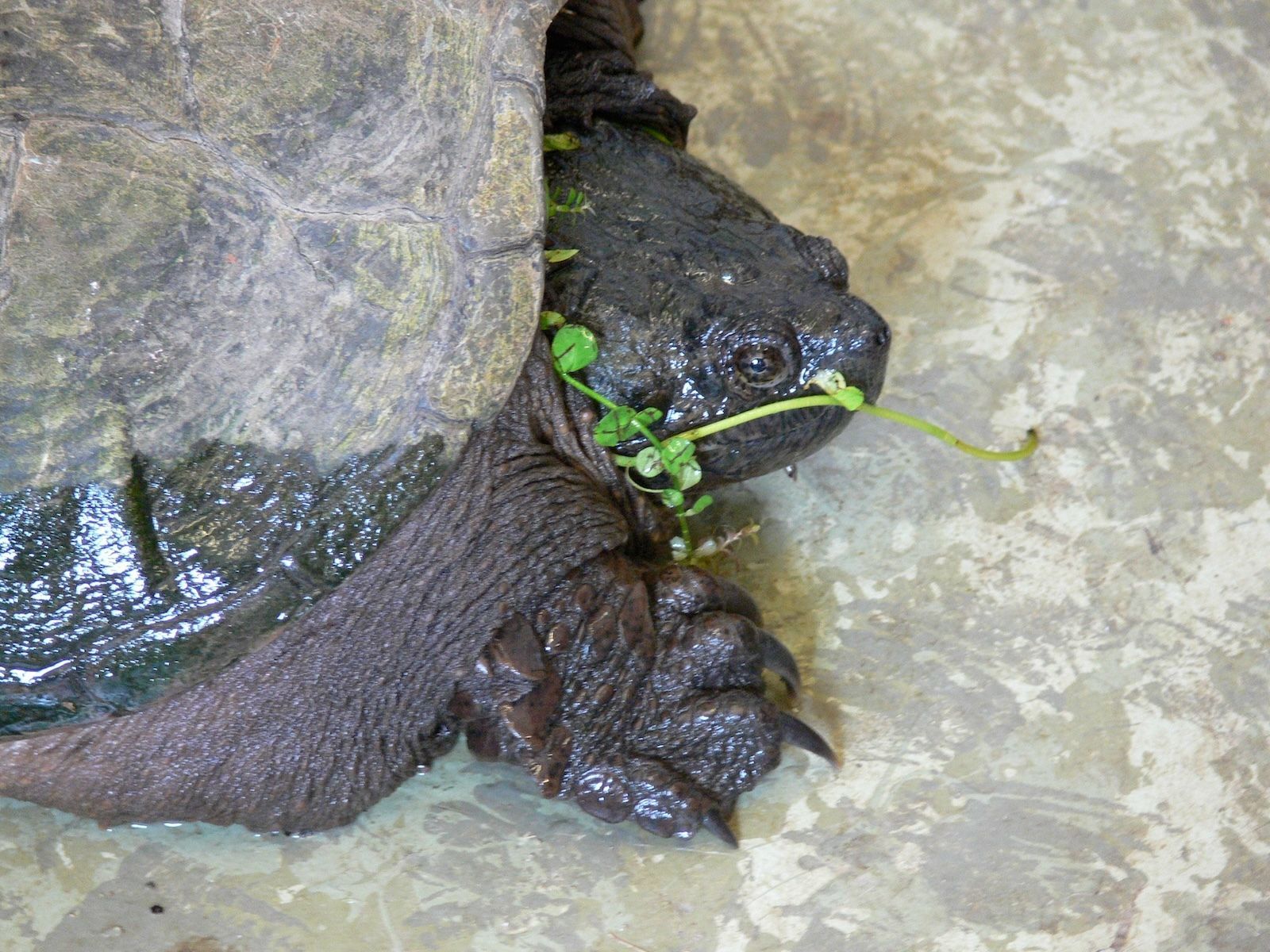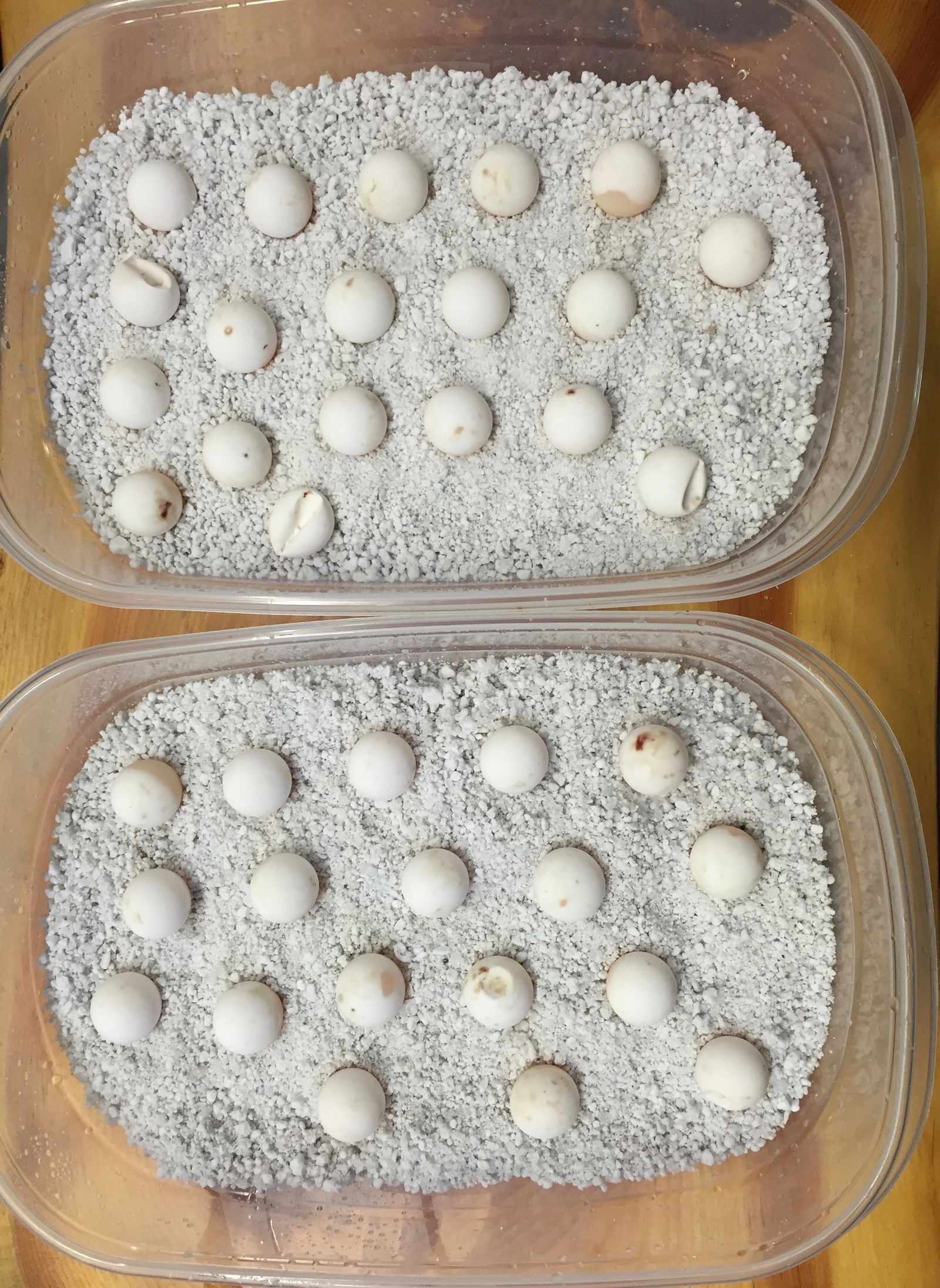
A young child was walking to the school bus stop with her mother. On the side of the road, they came upon a hit-by-car Snapping Turtle. The child got on the bus after getting assurances from her mother that something WOULD BE DONE! The mother had to go to work, so she talked her sister into taking the turtle to the Inland Fisheries and Wildlife headquarters. Once there, she and a biologist examined the turtle trying to tell if it was still alive. The biologist thought not, the sister called Acadia Wildlife. We advised her to take the turtle to our turtle vet who was nearby.
Our vet determined that the female Snapper was unfortunately dead. But she was full of eggs. Our vet removed 36 ping-pong shaped white eggs. We drove 2 hours to get them. We settled them into a hatching medium and waited. And waited. And waited- all summer.
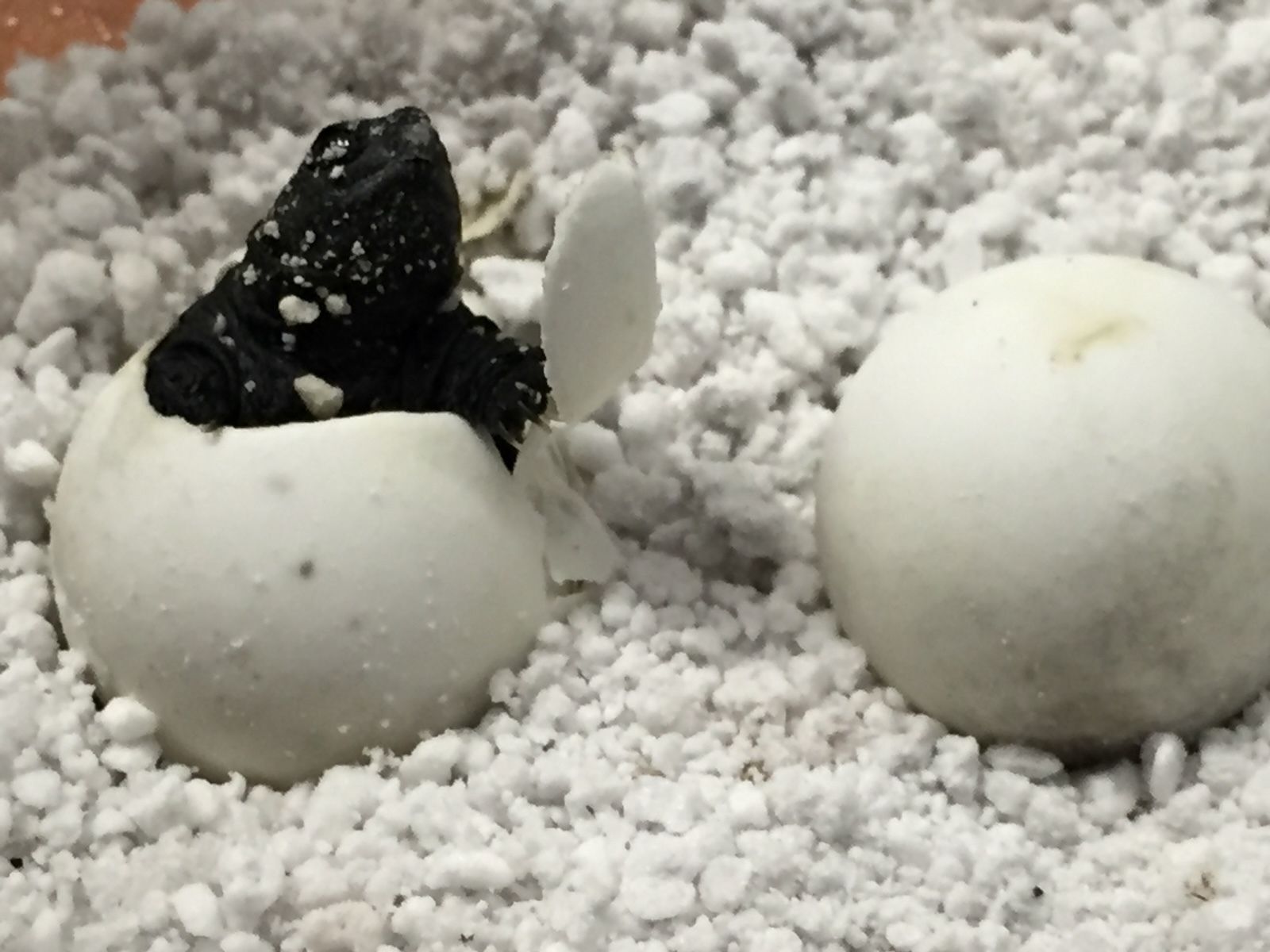
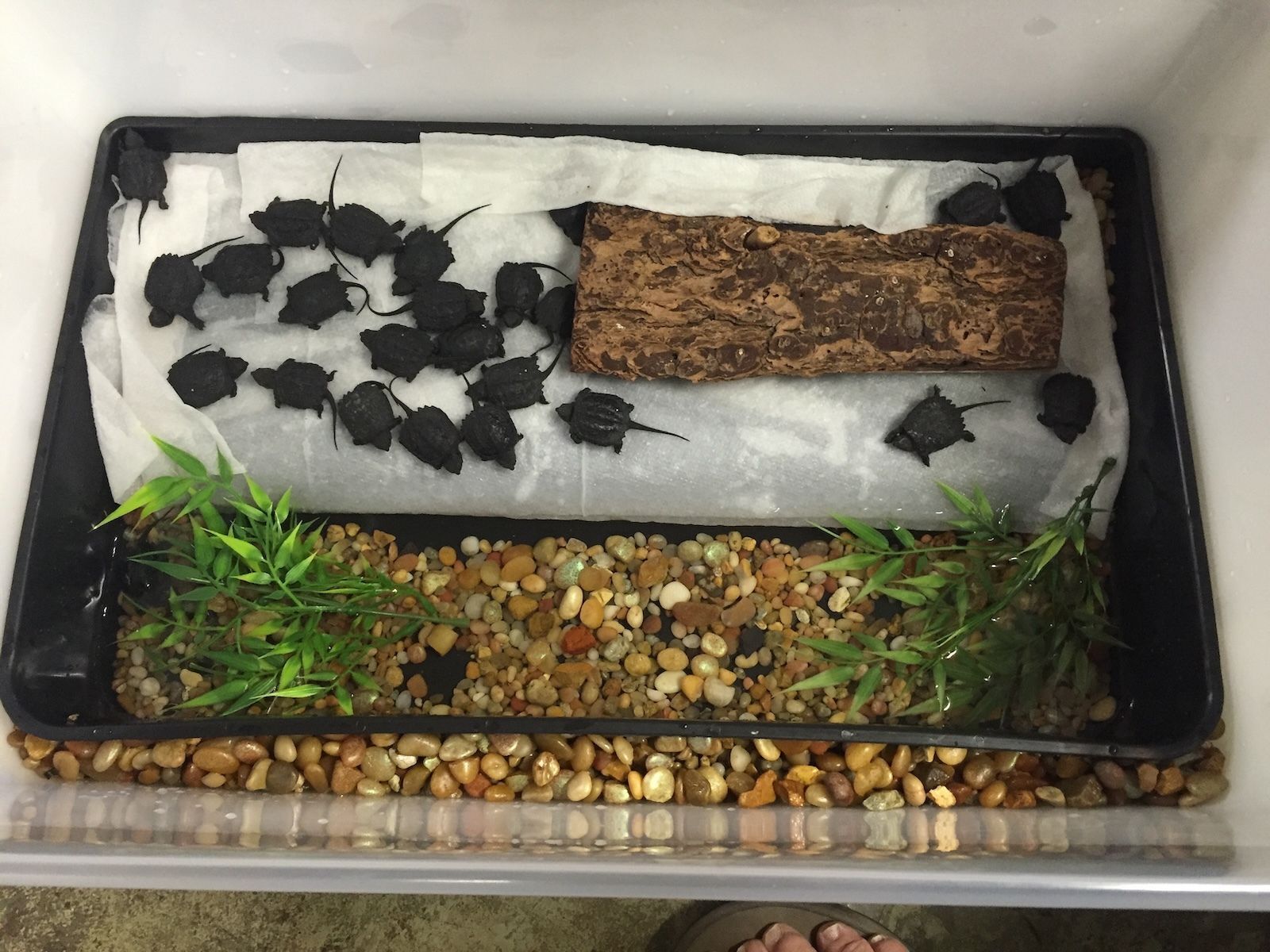
Turtle eggs get laid in gravel or sand by a mother who can walk up to ten miles from her pond to find just the right nesting spot. She digs a deep hole and can lay up to 40 eggs. The eggs on the bottom where it is cooler can hatch out males. The eggs nearer the surface where it is warmer can be females. Unlike bird eggs which the mother turns multiple times a day to prevent deformities, turtle eggs must not be joggled or turned as the placenta is attached to the inside of the shell and can get torn. In the wild less than 5% of eggs hatch into baby snappers. Many nests are predated by racoons and other mammals. The tiny hatchlings must dig their way through the gravel and then face a daunting trip back to the lake, slowed down or stopped by so much as a blade of grass. How do they know where to go? We don’t know. Once in the lake they face predation from all sorts of fish and mammals. The mother is lucky to replace herself once in her long life of laying eggs. They can grow to 45 pounds, live for 60 years, and are an ancient species that look like dinosaurs.
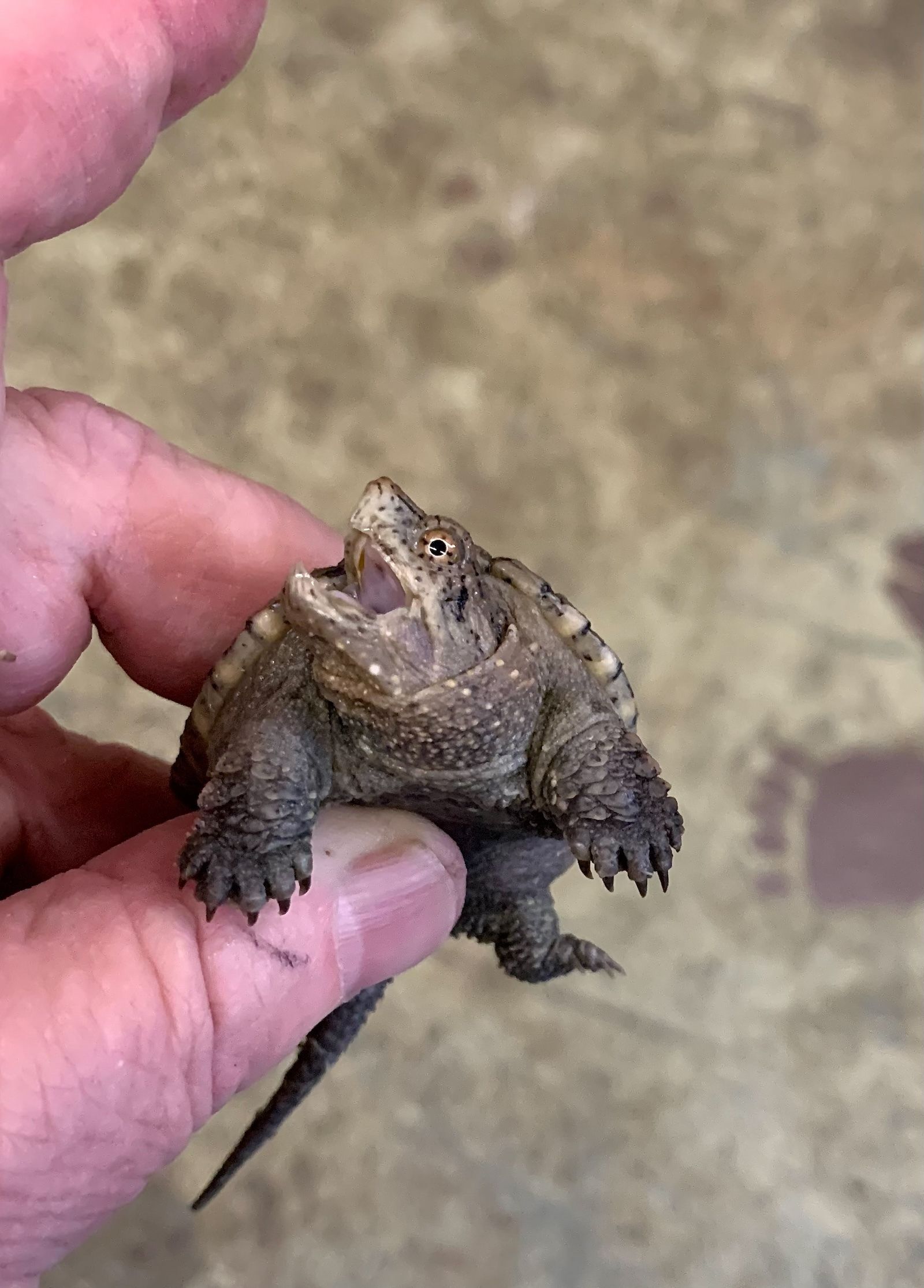
Out of this clutch, found by a little girl who cared; taken home by a mother who cared; driven to Fish and Game by a sister who cared, extracted by a vet who donated her time and cared, and watched over by a team of rehabilitators who cared; 26 baby snappers were set free in the closest lake to where a car hit their mother.
